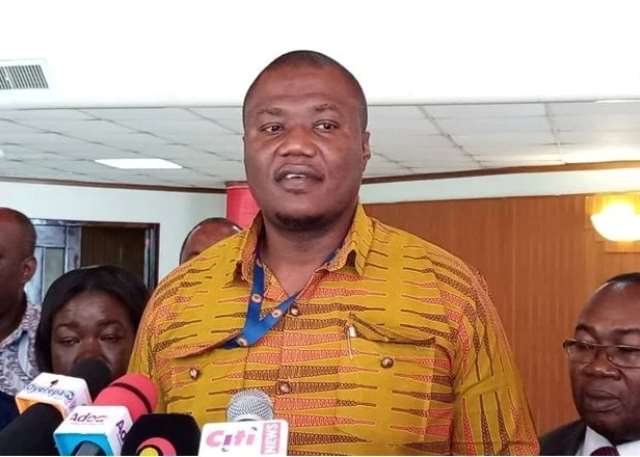The Minority Caucus in Parliament has expressed serious reservations about the government’s proposed funding mechanism for the newly established Ghana Medical Trust Fund, also known as the “Mahama Cares” initiative. Their primary concern revolves around the allocation of 20% of the National Health Insurance Fund (NHIF) to the Trust Fund, a move they believe will jeopardize the financial stability of the National Health Insurance Scheme (NHIS) and create unnecessary competition for resources between two vital healthcare programs. They argue that this strategy is unsustainable and will ultimately undermine the nation’s healthcare system. Instead, the Caucus proposes a more viable alternative: redirecting the COVID-19 levy to finance the Trust Fund, ensuring a dedicated and consistent revenue stream without compromising the NHIS.
The Minority Caucus’s argument hinges on the potential detrimental impact of diverting funds from the NHIS. They contend that siphoning off 20% of the NHIF’s resources will significantly weaken its ability to provide essential healthcare services to the population. The NHIS plays a crucial role in ensuring access to healthcare for a large segment of the Ghanaian population, and any reduction in its funding could have far-reaching consequences. Furthermore, the Caucus questions the logic of essentially pitting two critical healthcare initiatives against each other for limited financial resources, creating an unnecessary and potentially damaging competition. They believe that a more prudent approach would be to establish a separate and dedicated funding source for the Trust Fund, thereby avoiding any conflict of interest and ensuring the long-term viability of both programs.
The Caucus has also highlighted the perceived inconsistency in the government’s position regarding the COVID-19 levy. Prior to the 2024 general elections, the National Democratic Congress (NDC), the party currently in power, had pledged to abolish the levy. However, their current proposal to utilize this same levy to fund the Mahama Cares program suggests a shift in their stance. The Minority Caucus interprets this as an acknowledgment of the levy’s usefulness and calls for its repurposing to support the Trust Fund, rather than diverting funds from the already established NHIS. They argue that this would be a more efficient and less disruptive way to finance the Trust Fund while maintaining the integrity of the NHIS.
Adding to their concerns, the Minority Caucus has raised questions about the potential overlap in mandates between the National Health Insurance Authority (NHIA) and the newly established Trust Fund. They argue that the functions of the two entities appear to be similar, leading to ambiguity and potential confusion regarding their respective roles. This lack of clarity, they suggest, could create difficulties for citizens seeking medical support, as they may be unsure which entity to approach for assistance. The Caucus calls for a clear delineation of responsibilities between the NHIA and the Trust Fund to ensure transparency and efficiency in the delivery of healthcare services.
Furthermore, the Minority Caucus proposes an alternative strategy for strengthening the healthcare system: prioritizing the completion of some Agenda 111 hospital projects and designating them as specialist centers for treating non-communicable diseases. They argue that this would address a critical gap in healthcare provision, providing specialized care for conditions like cancer, diabetes, asthma, stroke, and kidney disease. By focusing on these specific areas, they believe the government can make significant strides in improving healthcare outcomes and addressing the growing burden of non-communicable diseases.
In conclusion, the Minority Caucus’s concerns revolve around the financial sustainability and potential operational challenges of the proposed funding model for the Ghana Medical Trust Fund. They advocate for a more thoughtful and strategic approach that prioritizes the long-term health of the nation’s healthcare system. Their recommendations include redirecting the COVID-19 levy to fund the Trust Fund, clarifying the roles of the NHIA and the Trust Fund, and prioritizing the completion of Agenda 111 hospitals to address the growing need for specialized care. They believe that these measures would create a more robust and effective healthcare system, ultimately benefiting all Ghanaians.


